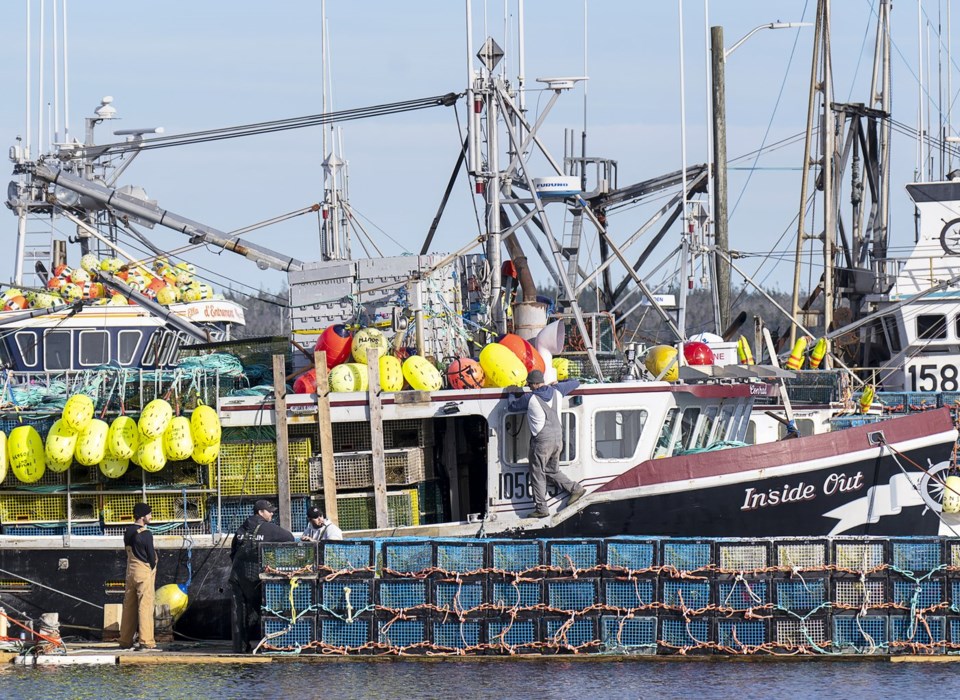HALIFAX — The federal Fisheries Department says it is concerned about a "pattern" of violence and threats toward its enforcement officers after two tense incidents off southwestern Nova Scotia last month.
In a news release Friday, the department cited a Sept. 19 case in St. Marys Bay during which fishery officers faced "an attempted assault while conducting routine at-sea enforcement activities." Investigators said they made arrests and seized the vessel and unauthorized lobster traps, and referred the assault investigation to the RCMP.
The release also said that on Sept. 25 fishery officers attempted to board and inspect a vessel in St. Marys Bay but the operator tried to evade them, leading to a collision between the two boats.
RCMP spokesman Cpl. Guillaume Tremblay said officers laid charges of obstruction and assaulting a police officer against a 27-year-old man in the Sept. 19 case, but concluded no crime occurred in the Sept. 25 incident.
The public prosecution service said in an email that Jason Douglas Francis of Yarmouth, N.S., is scheduled for arraignment on Nov. 18 in Digby provincial court to face charges of obstruction, assault with a weapon and assault of a police officer in relation to the Sept. 19 case.
The Fisheries Department did not respond to emails requesting further details about the incidents, and the RCMP also declined to provide further details.
Meanwhile, some officers have refused to participate in enforcement duties, making a claim under the Canada Labour Code that their work is too dangerous. A government source with knowledge of the refusal-to-work applications has told The Canadian Press that about half of field officers in southwestern Nova Scotia — home to the region’s most lucrative lobster fishery — are not carrying out enforcement duties in the field due to the safety concerns.
The source, who spoke on the condition of anonymity because of the risk of employment reprisals, said the work has become more violent as fishers are increasingly unwilling to accept officers’ authority. He also said tensions with some Indigenous fishers are rising.
Doug Wentzell, the federal Fisheries Department’s regional manager for the Maritimes, confirmed in a recent interview that "a number of officers" have refused field work and that his department is going through a process of reviewing the safety concerns under provisions of the Canada Labour Code.
The civil service manager said that despite the refusals “the majority of our officers are in the field in the region" and the department is bringing in officers from other regions.” He estimated there are about 100 field officers in the Maritimes region, which includes the southern and eastern shores of Nova Scotia and the Bay of Fundy coast in that province and New Brunswick.
Nova Scotia's fisheries and aquaculture minister has said he recently met with Diane Lebouthillier, federal fisheries minister, "on the serious issue of illegal lobster fishing," asking her department to step up enforcement.
"We have repeatedly called for the federal Department of Fisheries to address the illegal and off-season lobster harvesting in the Clare region and neighbouring communities in southwest Nova Scotia," wrote Kent Smith, Progessive Conservative member of the legislature for Eastern Shore.
"The potential for this issue to escalate is real. Our communities need clear, decisive action, and we need it now. I’ve heard directly from fishers who have been threatened, had their property damaged, and who live in constant fear of repercussions for speaking out," he said.
This report by The Canadian Press was first published Oct. 4, 2024.
Michael Tutton, The Canadian Press


